Isolation is a fundamental quality of horror. Spending time in the woods with a few pals miles from civilization is great fun until the last campfire goes out; then the darkness is right against your skin and there’s no way to know what’s just six inches in front of your face. That’s why ghost stories are so much more potent at summer camp. Ridley Scott transplanted that “alone in the woods” eeriness into the vacuum of space to great success in Alien, and horror maestro H. P. Lovecraft explored how isolation could turn individuals, families, and even entire towns mad. To go into dangerous, uncharted territory alone, you’d have to be either a fool or a hero. Samus Aran descends into the depths of Zebes by herself in Metroid because she’s one of those things. Cologne-based developer Julian Laufer is developing the indie Metroidvania Outbuddies almost singlehandedly for the same reason.
Smartly, Laufer isn’t going in completely alone. His brother Tobi will be providing art, and UK-based composer OGRE is handling the game’s music and sound. In that spirit, Outbuddies will shirk the traditional Metroidvania atmosphere of total isolation. The game’s primary draw is protagonist Nicolay Bernstein’s cyber homie, Buddy. Buddy can assist Bernstein in performing various tasks and can even be controlled by a second player for some couch co-op. Hey, if Alucard can storm his father’s castle with a fairy, a demon, and a ghost for backup, then surely it’s fair game for Metroidvania heroes to have a little help, horror or no horror?
For more about Outbuddies, what makes a true Metroidvania, and the viability of game development as a career in Europe, we spoke to developer Julian Laufer.
You have a long history of tinkering with games, but is Outbuddies your first full release?
Julian Laufer: Me and my younger brother Tobi grew up in the ’80s and ’90s. Playing games like Super Metroid, Secret of Mana, and a lot of co-op sidescrollers with my bro is part of my most loved childhood memories. Getting hands on my first game engine at an age around 12 immediately hooked me to creating my own worlds. I never released something finished though; it was just for my entertainment back then. Although I loved making games more than anything else, pursuing a career in game development did not feel like something sustainable back then.
After finishing school I worked at a local hospital for some months and finally decided to pursue a career as a clinical psychiatrist. I’m very grateful for seeing a sense of purpose in my daytime profession; however, after a couple of years on the job, I started to feel pretty messed up. The life I had chosen did not resonate that well with my creative mind. Life felt overwhelmingly heavy and depressing at times, and I simply missed daydreaming and creating things. That was the time when I started to fiddle around with game-making software again. I remember being stunned how different everything felt compared to in the ’90s, how accessible game development and software distribution had become.
As a daytime employee, husband, and (meanwhile) father, the odds of finishing something big were all against me. I gave it a shot anyway, because making games calmed my soul and I simply enjoyed it. After some weeks of prototyping, I started with a remake of River City Ransom in 2012, but one year into development I had messed up a lot of things with my code. I felt the project was getting nowhere and decided to start all over in another genre. I also cut back on my clinical job. Creating a Metroidvania in the spirit of Super Metroid seemed very motivating to me. I honestly was super naive back then and had no idea what I was getting myself into. I’ve sunken around 6,000 hours into the project by now, a lot more than originally planned.
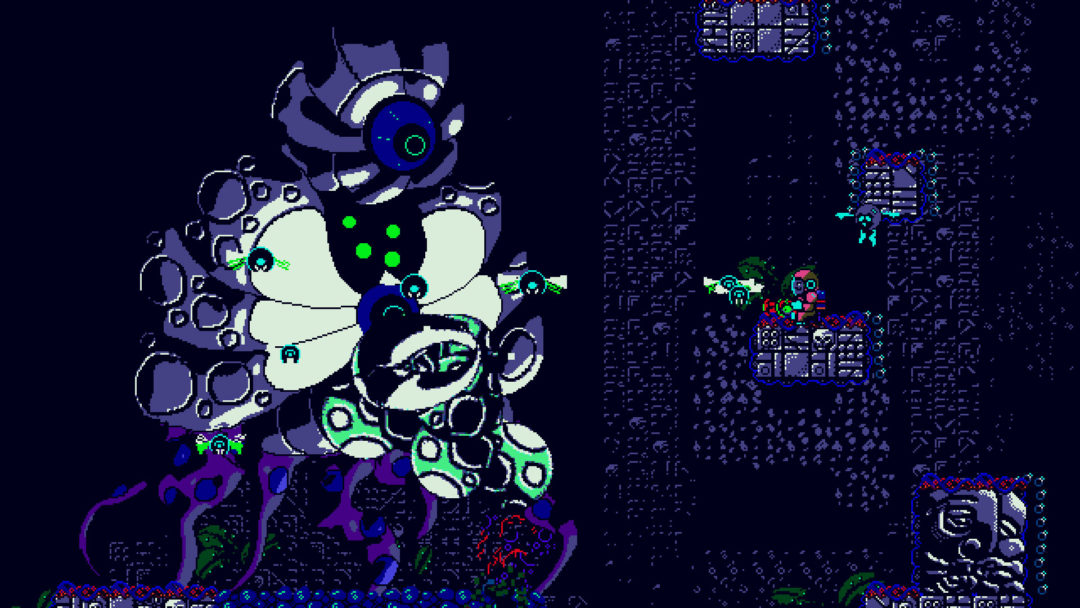
Give us a quick rundown of Outbuddies. What is it? How do you play it? What’s the goal of the game?
Laufer: “Run, gun, and explore an open undercity with your sidekick droid Buddy, rescue Wozan miners, fight really mean bosses, and find your way home.” That probably puts it best. I also sometimes describe Outbuddies as putting Mario in Samus’ suit and fusing the good memories of both childhood games into one unique experience.
You play as Nicolay Bernstein, a marine archaeologist and adventurer obsessed by the idea of an unknown alien civilization that suddenly vanished before the rise of ancient human high cultures. Sidekick droid Buddy was originally implemented as a nice gimmick but evolved into a fully playable character over the last [few] years, including a local Co-Op option.
The game has a strong focus on environmental storytelling, using as little dialogue as possible to craft an intriguing world and memorable characters. The backstory heavily involves the fate of the Wozan, an enslaved folk of mining people, as well as your obscure role in a conspiracy among some of the Old Gods, which were left behind to guard what remains of the sunken civilization.
I put a lot of effort in the various movement abilities and combat interactions to [make them] feel natural and satisfying. In that field, Outbuddies borrows a lot from modern titles like Hollow Knight and Dead Cells. Outbuddies’ bosses are very varied and will require strong reflexes, profound memorization of attack patterns, or even out-of-the-box thinking to stand a chance. Leveling and grinding mechanics are skipped in total. The player gets stronger, but in a sense of having more options, not necessarily in the sense of becoming an overpowered war machine.
You describe Outbuddies as having “real Metroidvania gameplay.” What makes a “real Metroidvania” to you? How will Outbuddies meet that description? Are there any games that you would consider to not be “real Metroidvanias”?
Laufer: Outbuddies follows a very classic Metroidvania design, that is more on the “Metroid” than on the “Vania” side of things. The term “classic” is probably more suitable than “real,” but it honestly sounds kind of worn out in a marketing context.
As I put it, “Metroidvania” essentially means running a giant maze in search of weapons and gear upgrades that are crucial to uncover the whole map and find your way out. Having a non-linear level structure combined with a selective gear-based progression system is, in my opinion, the baseline for calling a title a “real” Metroidvania.
Dead Cells and A Robot Named Fight proved that even MV and rogue elements can be mixed up to create something new and special. The “Roguevania” tag emerged quickly to differentiate those games from the classic MV. I think it’s actually a good move that helps our players to identify the games they really dig. The inflationary trend to call any action platformer a MV by trade does not help in that context for sure.
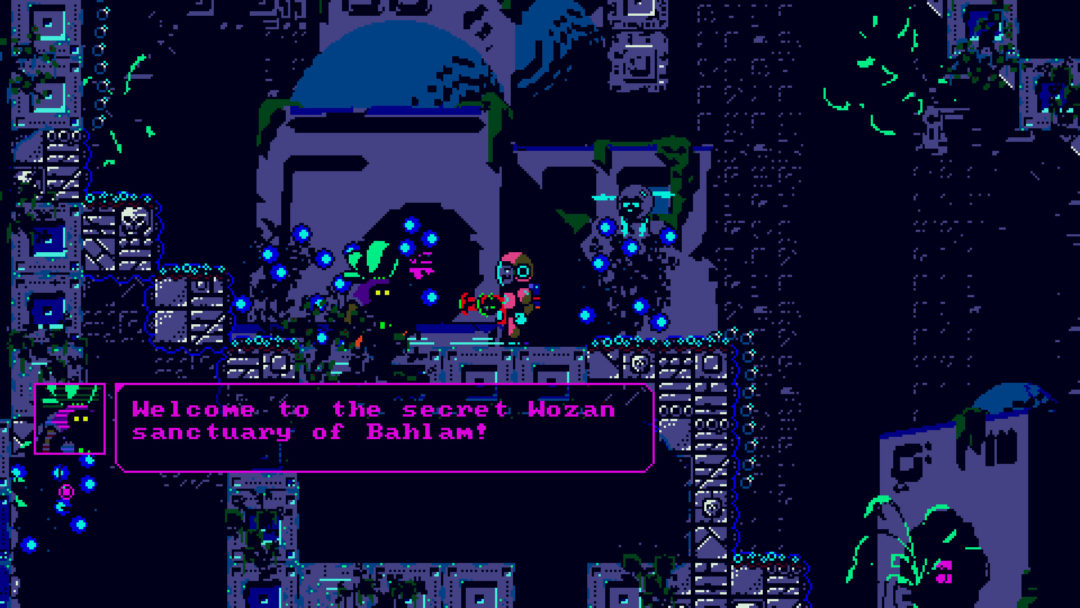
One of the main interesting features of Outbuddies is its local co-op. With the rise of online multiplayer we’ve been seeing a decline in couch co-op games recently. What made you want to include a local co-op mode in Outbuddies?
Laufer: The idea of local co-op emerged around the Buddy droid leaving his gimmick status behind and becoming a fully fleshed character with various interesting abilities. Local co-op games were a big part of my childhood, and I hope the experience will be valued by our players, providing a possibility of team-speedrunning as a fresh take on the scene. Due to the asymmetry of both characters and the shared screen, a lot of real-life communication will be needed to become an efficient team. Of course, it would be super cool to have online multiplayer too, but that, unfortunately, is out of my current scope.
Outbuddies has three basic abilities: Scanning, Telekinesis, and Hacking. Scanning is a quality-of-life tool that avoids random wall-bombing to find secret areas and gives clues [about] how to interact with unknown objects and facilities. Telekinesis is used to move physical objects to modify platforming obstacles or even crush enemies. Hacking is an ability to modify enemy behavior or functionality to your advantage, a bit like the famous glitch ray in Axiom Verge. Compared to the single player experience, the co-op mode needed to provide a more constant activity flow for the Buddy player. On co-op, larger enemies will generate shields that have to be destroyed by Buddy to stand a chance. Also, more random enemies are hackable and every boss exposes a Buddy-specific weak point.
The music in Outbuddies is being done by English musician Robin Ogden, aka OGRE. How did he get involved in the project? What made you think he’d be a good fit for Outbuddies?
Laufer: I had followed Robin’s work for some time before I finally approached him in the course of launching Outbuddies’ Kickstarter campaign in 2017. The game had a super low budget back then and the quality was very rough. Metroidvanias evolve their fascination around an eerie atmosphere, and music is a very central aspect to reach that goal. Robin is an outstanding experienced artist who has the rare ability to craft very original tunes that stand out on their own while still aligning well with the gameplay. Outbuddies’ soundscape even dynamically adapts to actual in-game situations, and I’m very proud of that feature.
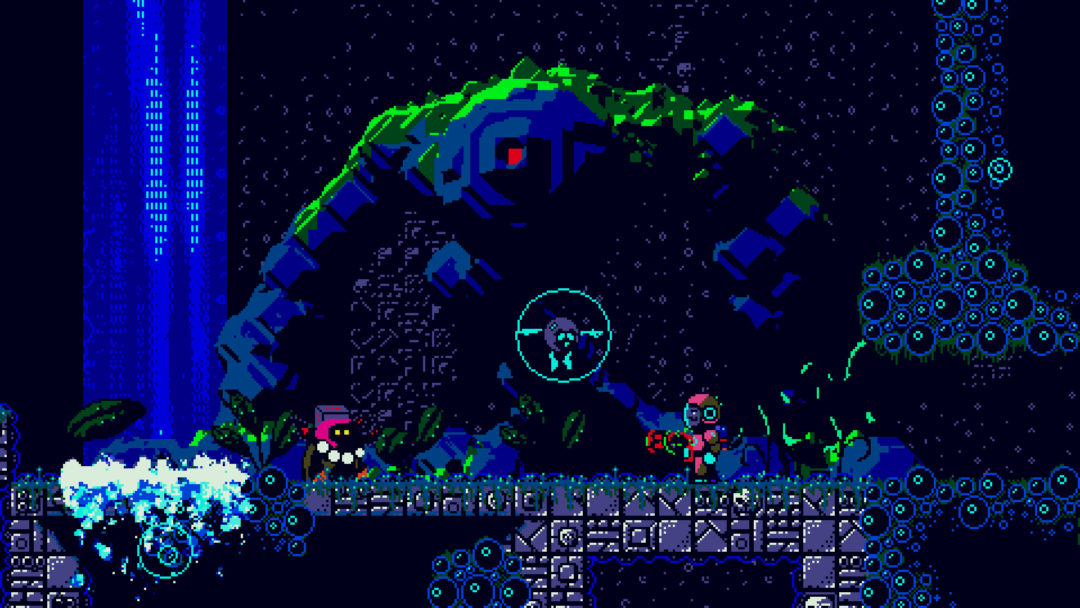
You describe Outbuddies as having a 16-bit aesthetic, but in my first rundown of the game I described it as more reminiscent of classic MS-DOS titles. You use lots of black and gray accented with vibrant greens, reds, and teals, which gives the game a look more like Commander Keen than Chrono Trigger. Super Metroid is an obvious visual cue, but where else did you look for inspiration on the game’s look? Did you look outside games at all, to any films, or fine art, or did you try to make sure all the visual touchstones were other video games?
Laufer: I think your description is very adequate! That old 16-bit aesthetic tag of mine is a backslash associated with the game’s open development. I had started posting about Outbuddies in 2016, and the internet will keep your statements forever! Having a game with a 16-bit look was more a wish than something I could actually execute. I was a total beginner artist back then and didn’t even know what 16-bit actually meant. Today I know better and would rather describe the game’s visuals as inspired by late NES titles, like Batman Returns. In this style, most background elements are carved out of black, which saved me a lot of canvas and enabled me to craft an appealing composition with the skills and resources I really had available.
Managing color palettes was a real challenge and something that actually threatened the project. I felt colors were just not right, and the overall look was kind of blurred and muddy. I looked into filmmaking for answers [on] how to fix a messed up color composition and found color grading as a solution. A fellow developer helped me out with a pixel shader that saved the project’s visuals and gave Outbuddies the look it has today. Sometimes you’re just lucky. Still there are some readability issues here and there that need to be adjusted until release, but I feel I finally have something to be proud of!
The Castlevania series has a Gothic horror vibe, Metroid was heavily inspired by Ridley Scott’s Alien, Bloodborne throws in everything from Bram Stoker to H. P. Lovecraft, and Hollow Knight and Axiom Verge both have dark and spooky aesthetics. Now Outbuddies is going to strand players at the bottom of the ocean in the home of the Old Gods. What do you think it is about Metroidvanias that makes them such good vehicles for horror stories?
Laufer: As Lovecraft puts it, “The oldest and strongest emotion of mankind is fear, and the oldest and strongest kind of fear is fear of the unknown.” I think the MV design reflects emotions of insecurity and even fear really well. As a kid, playing Super Metroid would scare the shit out of me; sometimes I preferred watching my little bro play the game over playing myself. A central aspect to this emotion is the insecurity of not knowing where to go. No matter how difficult a Bowser castle in Super Mario might be, you know that you’re supposed to be there and will very likely make your way through it. This is completely different with the MV. Take a wrong turn and you’ll face something you cannot handle yet, and it will probably kill you. In case you realize your last save was an hour ago, things can become even more daunting. I think a lot of the thrill players experience when sequence-breaking also comes from that challenge
Lovecraft was a clear inspiration on the tone of Outbuddies, which also features shipwrecks and sunken cities, and stars a mustachioed archeologist. Did any other horror literature or film help inspire Outbuddies?
Laufer: I actually don’t play a lot of horror games, but I heard Amnesia comes really close, and I for sure felt the Lovecraftian despair when playing Darkest Dungeon, a game I was never able to finish. Although Outbuddies has a horror vibe to it and touches topics like slavery and human sacrifice, it also embraces a certain cuteness, as well as feelings of connection and joy in an obviously miserable situation, something you would unlikely find in a Lovecraft novel.
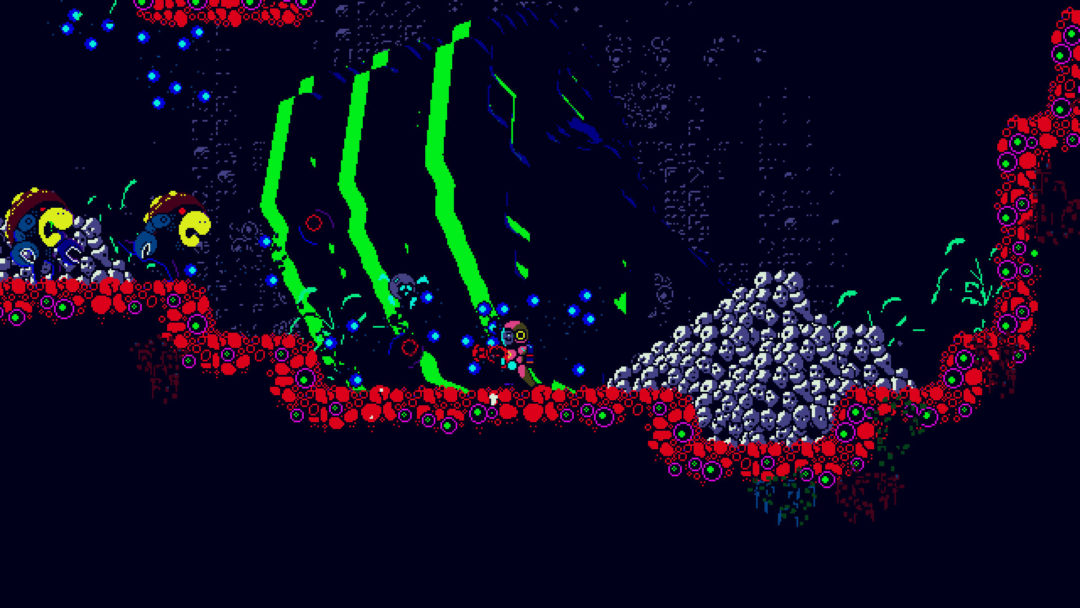
You’re based in Germany, where there seems to be a growing indie game scene. Is it getting easier for European studios to play a role on the traditionally U.S.- and Japan-dominated international game development scene? Can we expect to see more from Europe-based indie developers in the coming years?
Laufer: I personally think the indie scene and game development in total could be supported a lot more by the German government and tax authorities. Getting government funding or private investment for making an indie title can be very hard in Germany. Germans by trade need a lot of security and certifications to feel comfortable with their business decisions, and if the odds aren’t right (and they’re never right when making an indie title), you’ll likely not be supported to try anyway. I feel games are not really embraced as a growing industry factor. On the other hand, the talent is very much there and many young people would love to pursue a career in all fields of game development. I need to work a lot next to crafting this game to make ends meet. My total week usually has around 60 work hours and I drink up to six cups of coffee a day.
Anyway, it was and still is very difficult to explain to the tax authorities what making an indie game actually is. I already had to defend my business against the accusation of just pursuing an expensive hobby. To sum it up: We have great talent, but Germany is over-regulated and taxation, in my opinion, is a nightmare. There’s still a lot of work ahead of us if we want to compete with the U.S. industry, where creative business ventures and failure-based learning are embraced a lot more, both financially and when it comes to public reception. In the U.S. and Japan, being a game developer is a socially appreciated and legit occupation. In Germany, you may likely earn some disapproving smiles from telling people you’re going to make a living making indie games. Finding the right guys to hang out with is very important to stay motivated and keep your sanity.
Outbuddies is going to come out later this year. Do you have anything lined up for when it’s finished? Are we going to be seeing Outbuddies DLC? Outbuddies 2? A completely different project? What’s next for you?
Laufer: That will highly depend on the success of this title; a lot of personal resources and money went into the project. I feel confident that Outbuddies will find its audience and I’ll hopefully be able to make something this scope again in the future. I’m also a father and husband though, there are bills to pay, and my family endures quite a lot for this to happen. They believe in me and I try to push Outbuddies to become the best game it can possibly be.
I know the market is very saturated; that’s why I’m super happy to have indie publisher Headup on my side. Console ports for Nintendo Switch, Xbox One, and PS4 will follow next year. That would be a good point to have a DLC ready for sure. I’m thinking about an additional playable character. Outbuddies 2 sounds great – in the end, every indie aims to leave a mark in the gaming world! I also have a lot of ideas for other projects in my head, so maybe the universe actually wants me to continue making games!
[This interview was edited for brevity and clarity.]

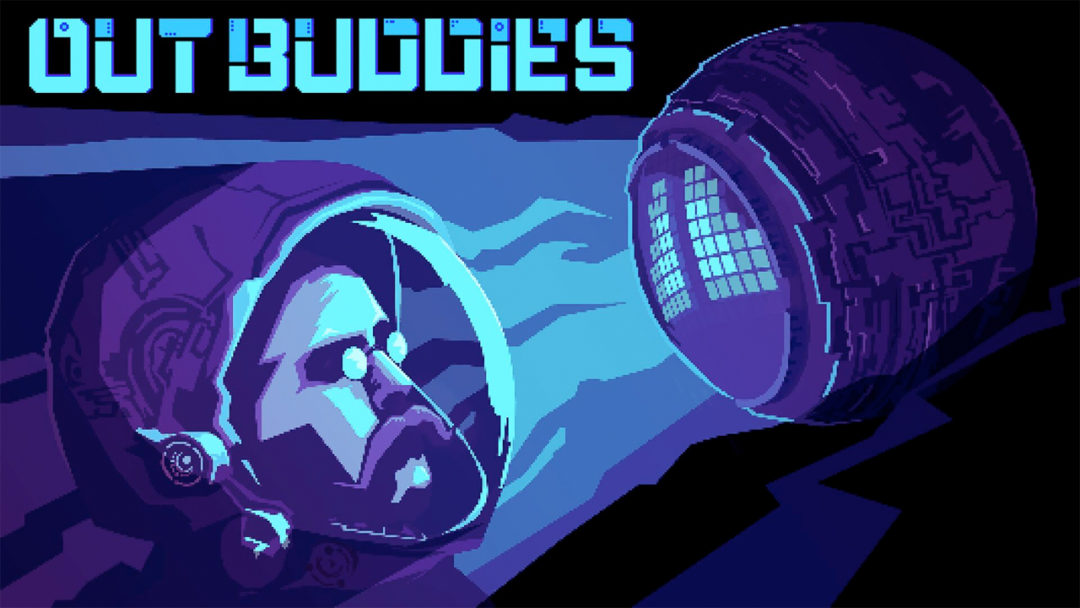
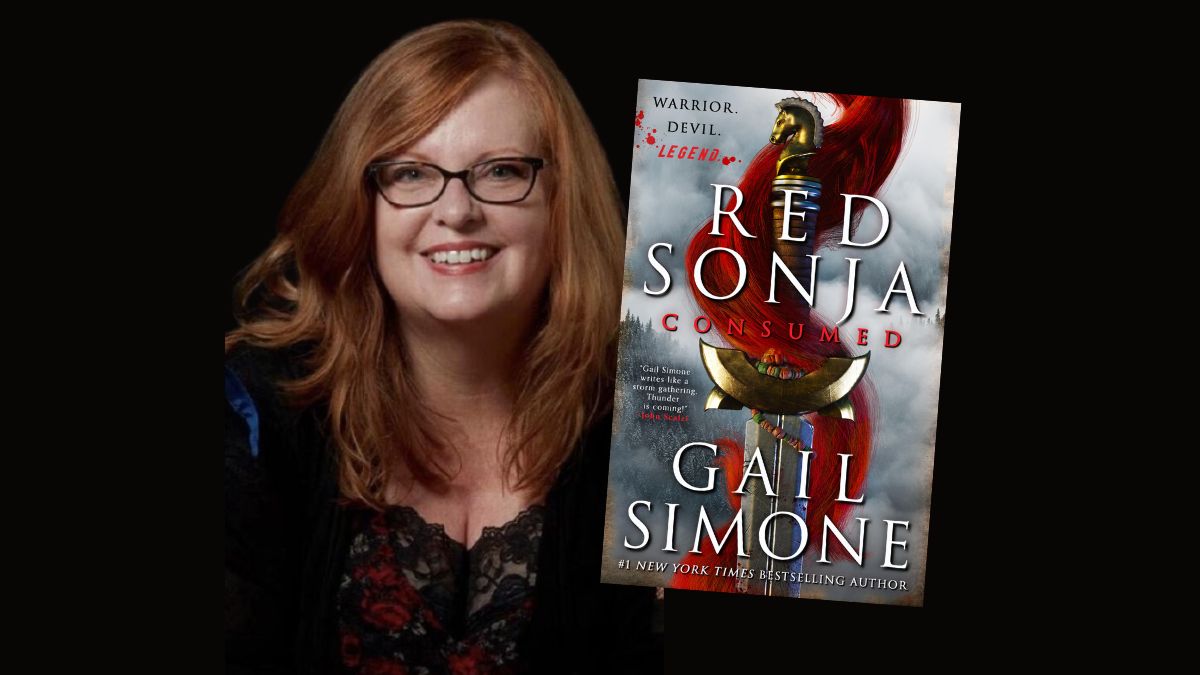
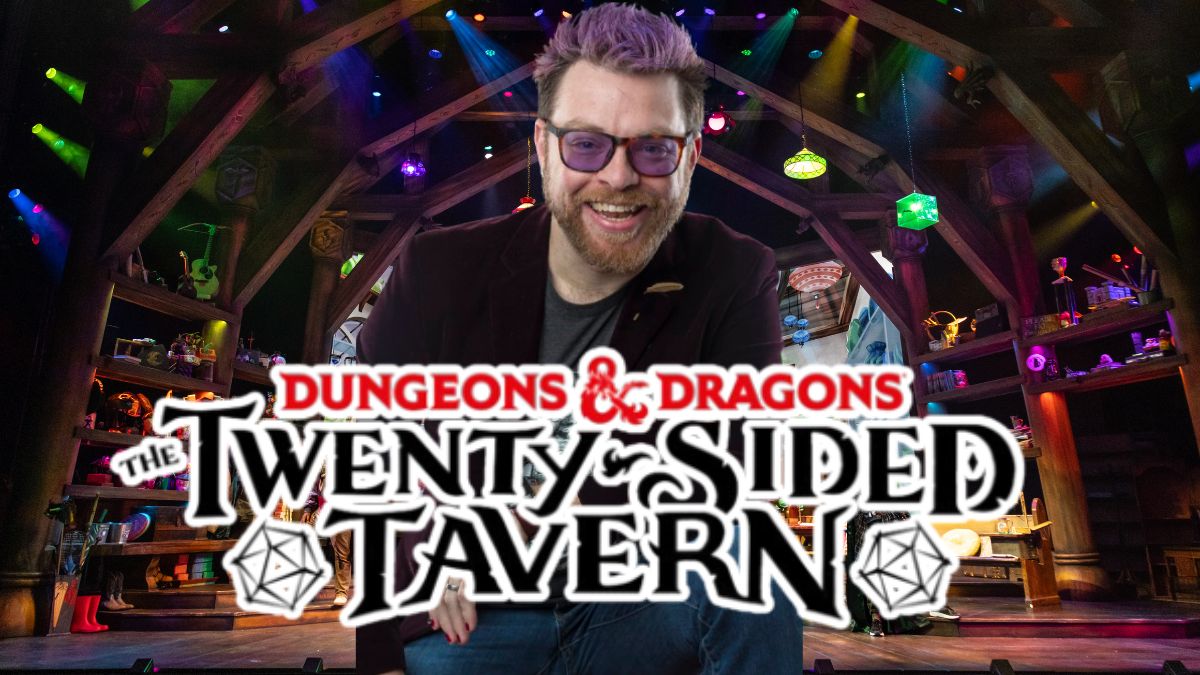

Published: Jul 23, 2019 01:00 pm